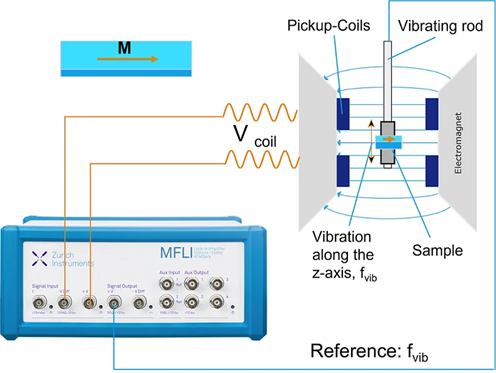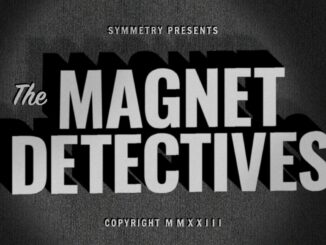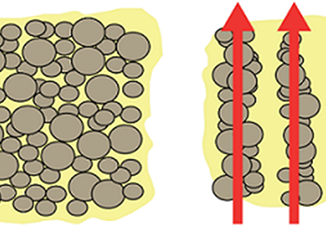
Building its portfolio for swooping on big opportunity in quantum computing, German test and measurement company Rohde & Schwarz has acquired Zurich Instruments, a developer of magnetic resonance force microscopy systems. Zurich’s magnetic force lock-in amplifiers and its sophisticated signal generators are considered important tools for researchers needing precision test and measurement solutions in the fast-growing field.
Zurich will operate as a wholly owned subsidiary with all functions to remain in place, from development and production to marketing and sales. “The size, stability and technological expertise of Rohde & Schwarz offer optimal conditions for us to remain a leader in the rapidly growing quantum computing market and continue to grow as an independent subsidiary,” said Dr. Sadik Hafizovic, co-founder and CEO. He is shown above with other key managers, from left, Adrian Messmer, VP R&D and HR; Flavio Heer, CTO; Hafizovic; Jan Benhelm, CMO; and Stephan Koch, VP Sales.
“We are looking forward to developing technological solutions for the future together with Zurich Instruments,” said Peter Riedel, president and COO of Rohde & Schwarz. “Our customers can expect further innovations in lock-in amplifiers, impedance test and measurement instruments and quantum computing control systems.”
In the coming decades, quantum technologies will significantly shape the high-tech industry, he noted. “The potential for industry and research is enormous. It is a future trend involving billions in governmental subsidies and industrial investment. Rohde & Schwarz is already active in quantum sensing. Thanks to the acquisition, the company is now positioning its T&M solutions in quantum computing, one of the most promising future technologies in the world.”
Based in Zurich, Switzerland and now with about 100 staff, Zurich was founded in 2008 as a spin-off from the Swiss Federal Institute of Technology (ETH Zurich). Its instruments can be used for Hall Effect sensing and magnetic materials characterization with applications including quantum and nano electronics, low-temperature physics and transport measurements. Three years ago, it introduced the first commercial quantum computing control system, designed to control more than 100 superconducting and spin qubits.
In a recent webinar, application scientist Jelena Trbovic, who manages nanotechnology and magnetism applications, explains how magnetic materials can be characterized using Zurich’s magnetic force lock-in amplifiers. The webinar, which along with a blog is available on the company’s website, covered two basic magnetic characterization techniques, vibrating sample magnetometry (VSM) and AC susceptibility where lock-in amplifiers are essential part of the measurement and the detection chain.

As illustrated in the figure above, MFLI differential measurements of the voltage induced in the VSM pick-up coils generated by a periodically oscillating sample magnetized in a homogeneous magnetic field. The vibration frequency of the VSM is provided by the lock-in amplifier and the signal is demodulated at the same frequency. With Cryogenic VSM magnetometers the temperature dependence of magnetization can be measured as well as the magnetization behavior at a fixed temperature where for ferromagnetic materials a hysteresis loop reveals information on magnetization saturation, coercive field and anisotropy. The sample is placed in the center of the pick-up coil configuration.
For more info, see www.rohde-schwarz.com and www.zhinst.com.



